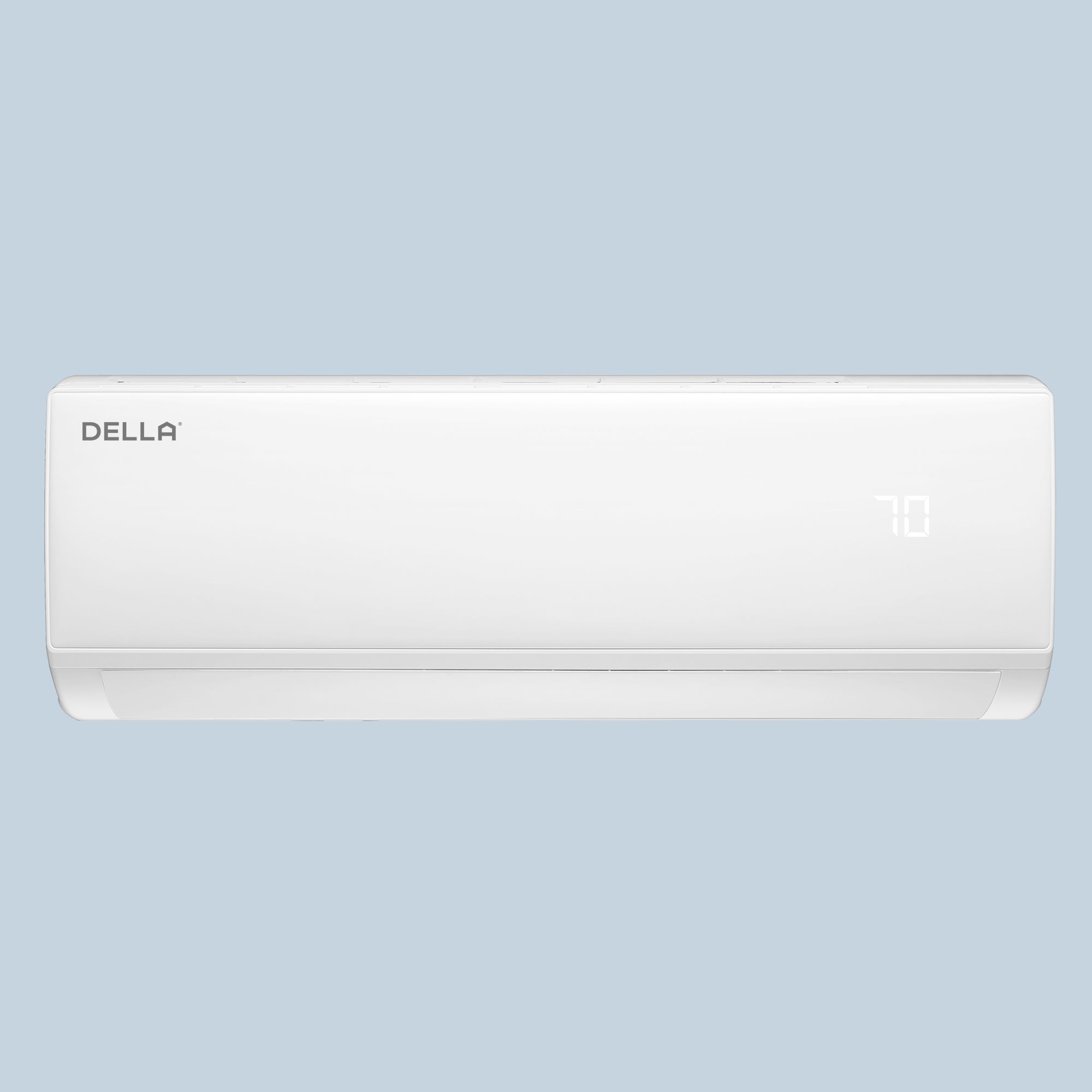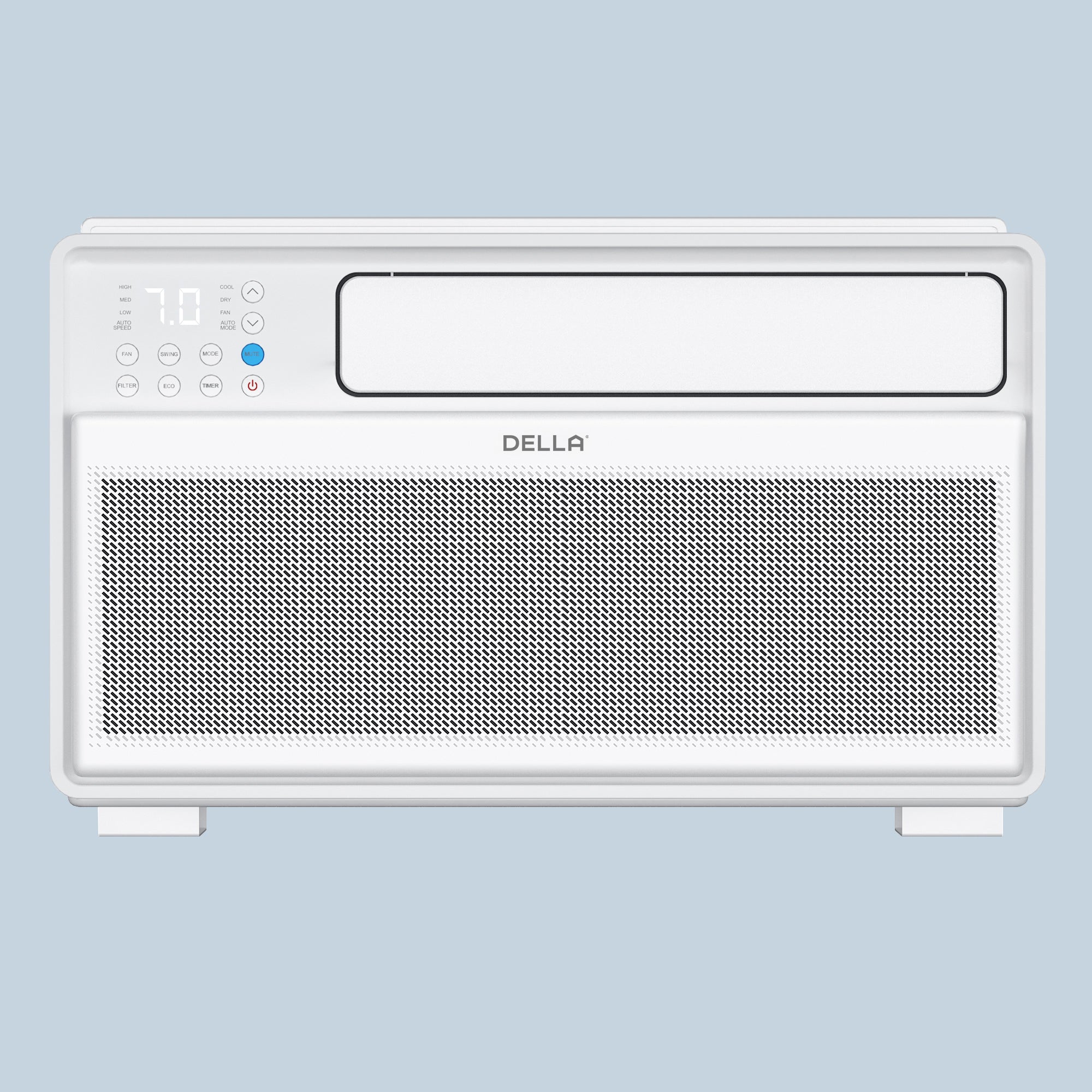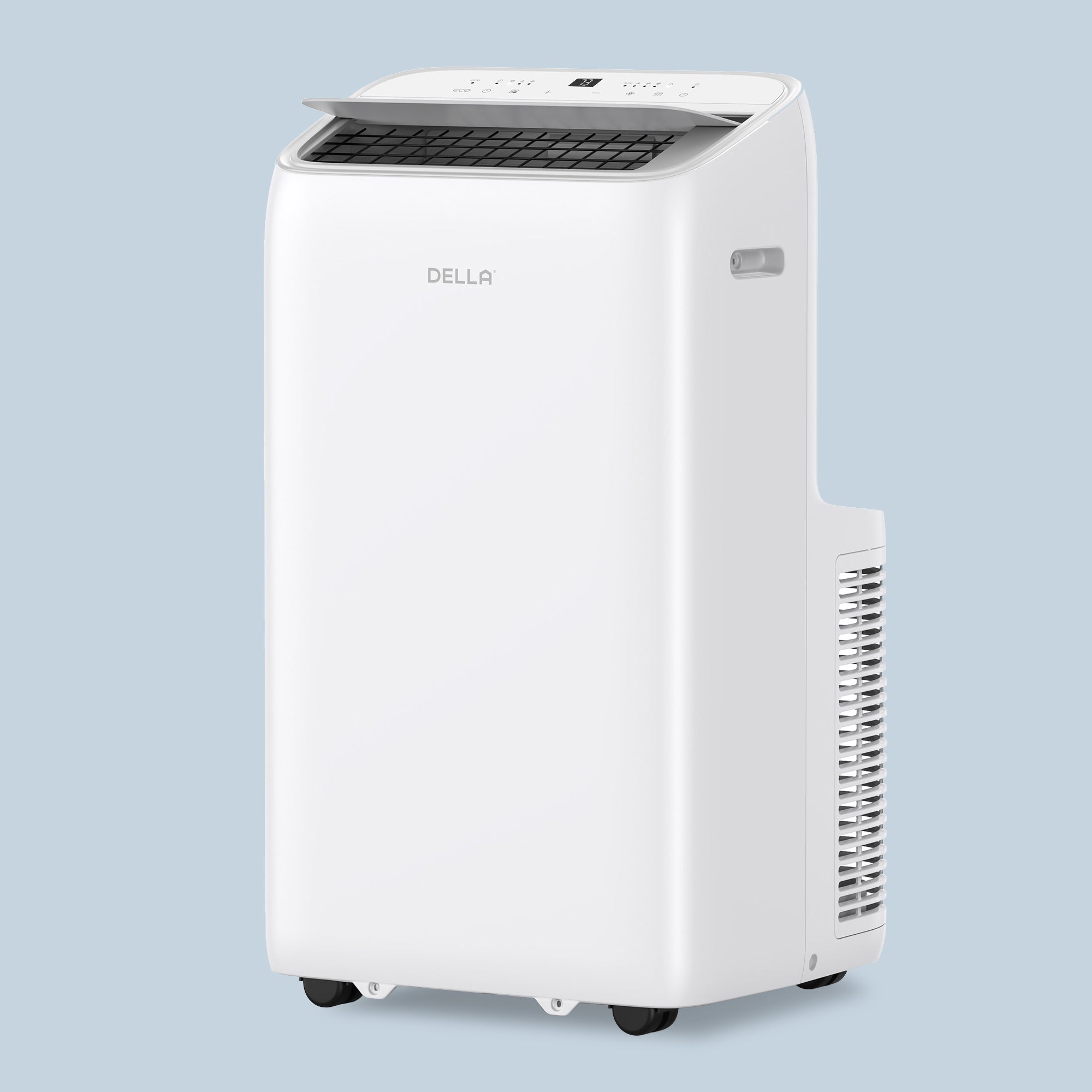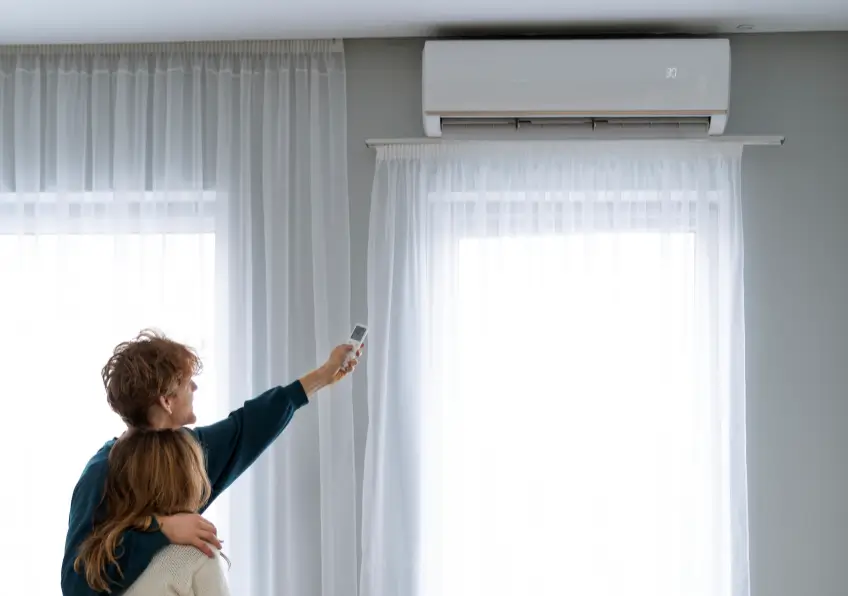BTU, or British Thermal Unit, measures how much cooling power an air conditioner provides, while Ton is another way to describe this capacity. There’s a simple conversion formula: 12000 BTU equals 1 Ton. Knowing this helps you pick the right AC unit, ensuring it’s just the right fit for your space in terms of both comfort and energy use.
What is BTU and Ton in AC? And How to Convert BTU to Ton?
BTU, or British Thermal Unit, is a way to measure energy. Originally, it was defined as the amount of heat needed to raise the temperature of one pound of water by one degree Fahrenheit. On the other hand, the term “Ton” might sound like it’s about weight, but in the AC world, it’s all about cooling capacity, comes from the amount of heat required to melt one ton (2000 pounds) of ice in 24 hours.
To understand how 1 Ton equals 12000 BTU, let’s break down the calculation:
To melt one ton of ice in 24 hours, a certain amount of heat must be removed. The heat required to melt 1 pound of ice is approximately 144 BTU. Since one ton is 2000 pounds, the total amount of heat required for melting a ton of ice is:
- 144 BTU/pound × 2000 pounds = 288,000 BTU
Since this process occurs over 24 hours, the BTU per hour is:
- 288,000 BTU ÷ 24 hours = 12,000 BTU/hour
That’s where the magic number comes from: 1 Ton of cooling capacity equals 12,000 BTU per hour. So, next time you see an AC unit labeled with “Tons,” you’ll know exactly what kind of cooling power it’s packing!

Why BTU or Ton Matters in AC?
Choosing the right BTU or Tonnages for your air conditioner is more than just picking a number for cooling capacity—it’s about making sure your space stays comfortable without wasting energy. Here’s a closer look at what can go wrong with an higher ton (oversized) or lower ton (undersized) AC:
Higher Ton AC
Short Cycling: A higher ton AC can cool the room quickly, but it shuts off before completing a full cycle. This frequent on-off cycling leads to more wear and tear on the system and fails to effectively remove humidity from the air.
Inefficient Energy Use: The constant starting and stopping of the air conditioner unit consumes more energy and leads to higher electricity bills.
Lower Ton AC
Continuous Running: A lower ton air conditioner unit struggles to cool the room and ends up running non-stop. This not only drives up energy costs but also puts a lot of strain on the unit.
Higher Energy Costs: Running the AC unit nonstop increases energy consumption, leading to higher bills, but still not providing adequate comfort.
How to Tell How Many Tons My AC Unit Is?
Figuring out the tonnage of your air conditioner unit isn’t as complicated as it might seem. Most of the time, you can find this information directly that HVAC manufacturers leave on the unit’s label or within the model number.
Just look for a two-digit number in the model number that’s divisible by 12. For example, a dual zone mini split AC from Della with the model number “18K+D99.” The “18K” signifies that this unit can provide a total cooling capacity of 18,000 BTUs. Since 12,000 BTUs equal 1 Ton, you can easily calculate the tonnage by dividing 18,000 by 12,000. This gives you 1.5 Tons.
What Ton AC Unit Do I Need?
Choosing the right ton air conditioner unit involves more than just knowing the square footage of your space. You should estimate your needs and adjust for several factors. Here's the brief guidance for reference:
Calculate the basic BTUs you need
The basic rule is to use about 25 BTUs per square foot of living space. To calculate the tonnage:
-
Square Footage × 25 BTU/sq ft = Total BTUs
Then, divide by 12,000. For example, to know how many btu for 1,200 sq ft:
-
1,200 sq ft × 25 BTU/sq ft = 30,000 BTU
-
30,000 BTU ÷ 12,000 BTU/Ton = 2.5Tons
Here, a 2.5 Ton unit would typically be a good choice.
Then adjust the tonnage you need based on the list of influencing factors. Here are some of them:
Ceiling Height
Higher ceilings mean more air to cool. For every foot above the standard 8 feet, consider increasing your BTU calculation by 10%.
Insulation
Well-insulated spaces can reduce your cooling needs by up to 10-15%. If your space is poorly insulated, you may need to add 10-20% more BTUs to your calculation.
Climate
In hotter climates, you might need an additional 20-30% more BTUs to maintain comfort. Conversely, in milder climates, you could reduce your BTU calculation by 10-20%.
Room Use and Sunlight
Rooms that get a lot of sunlight or are used for heat-generating activities like cooking might need an additional 10-20% more BTUs.

Get the Right Ton AC Unit Now!
Finding the perfect AC tonnage is key to keeping your space cool and your energy costs down. If you're looking for a unit that fits your needs, visit the Della website. including mini split AC units ranging from 1 to 4 tons, and special offers on multi zone systems during our air conditioner sale. Find the perfect fit for your space today!
FAQs
How many watts does a 3 Ton AC use?
A 3 Ton AC typically uses between 3,500 to 4,000 watts per hour. However, this can vary based on the AC unit's SEER (Seasonal Energy Efficiency Ratio) rating. For example, a SEER 13 mini split unit might use around 4,000 watts per hour, while a SEER 16 AC unit—being about 23% more efficient—would consume approximately 3,080 watts per hour.
At what temperature setting is AC most efficient?
An AC unit operates most efficiently when set to around 78°F (25-26°C). At this setting, the AC doesn’t have to work as hard to cool the space, and the room is comfortable enough for people. This temperature strikes a good balance between comfort and energy usage.
Related Reading:








LEAVE A COMMENT
All comments are moderated before being published.
This site is protected by hCaptcha and the hCaptcha Privacy Policy and Terms of Service apply.